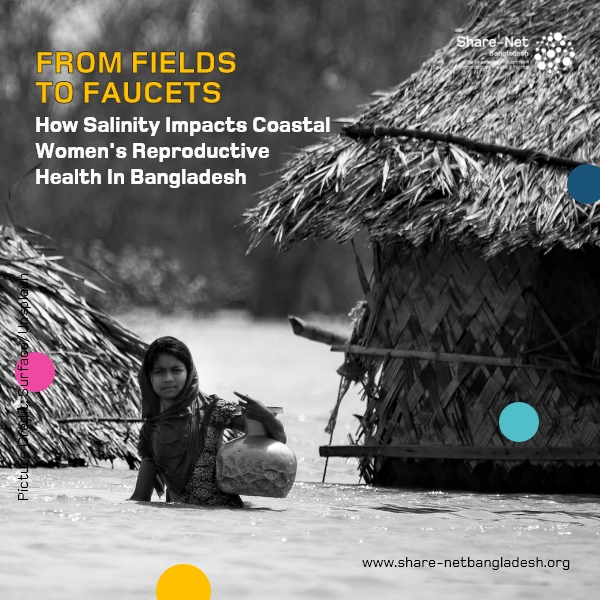From Fields to Faucets: How Salinity Impacts Coastal Women’s Reproductive Health in Bangladesh
In Bangladesh’s southwestern coastal regions, over 4 million people are struggling with a severe freshwater crisis, and it is the women who bear the brunt of this burden. As climate change exacerbates the situation and shrimp farming increases soil salinity, women are forced to walk miles daily to collect clean water, leading to serious health and social issues.
According to a recent report from Khulna, women in these areas must carry heavy pitchers of water for their families, a task that adds to their already grueling work hours. This daily toil leaves them with little time or energy, and the lack of access to clean drinking water often compels them to consume salty water, resulting in health problems such as hypertension, kidney diseases, and reproductive health issues. The intersection of climate change and reproductive health in the region has led to significant sexual and reproductive health and rights (SRHR) challenges for these women.
Salinity caused by rampant shrimp cultivation has devastated the local environment for decades, rendering agricultural lands barren and unfit for food cultivation. Despite this, there has been minimal action to reduce shrimp enclosures. Local influentials, prioritising their interests, have neglected the needs of the poor communities.
Climate change, with its impact on rainfall patterns, has made rainwater harvesting increasingly difficult, further aggravating the water crisis. This has forced many male agricultural workers to seek employment in urban areas, leaving women with the additional responsibility of managing household chores and securing water.
The United Nations’ Sustainable Development Goals (SDGs) emphasise clean water and sanitation (SDG 6) and gender equality (SDG 5), highlighting the urgent need for comprehensive solutions to this crisis. The government must invest in building proper water infrastructure to ensure accessible clean water within these villages.
Reducing soil and water salinity by controlling shrimp farming practices is crucial. Unauthorised sluice gates, constructed by shrimp traders in Khulna, have weakened river embankments, worsening the situation. Holding these traders accountable is essential to protect the environment and the health of local communities.
Supporting the women in these regions is vital. They need relief from the daily misery of walking miles under the scorching sun to collect water. By addressing the freshwater crisis and promoting SRHR, the government can improve the quality of life for millions of coastal women and advance Bangladesh’s progress towards achieving the SDGs.
In the face of climate change and environmental degradation, the resilience of these women is remarkable. However, without immediate and sustained action, their health and well-being will continue to deteriorate. The government and stakeholders must prioritise sustainable water management and gender-sensitive policies to ensure a better future for these communities.
Source: The Daily Star
Picture Credit: The New Humanitarian


